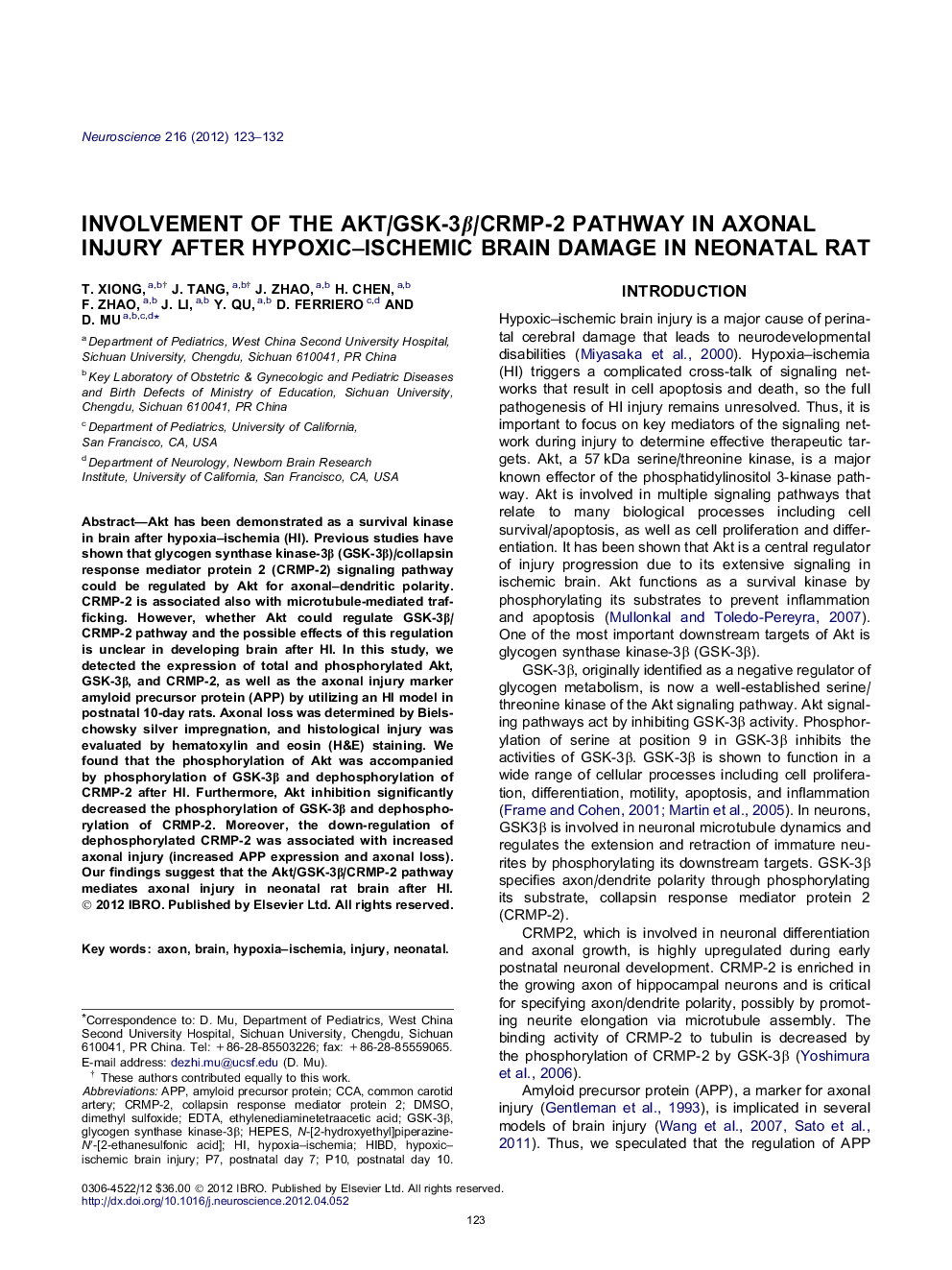| Article ID | Journal | Published Year | Pages | File Type |
|---|---|---|---|---|
| 4338404 | Neuroscience | 2012 | 10 Pages |
Akt has been demonstrated as a survival kinase in brain after hypoxia–ischemia (HI). Previous studies have shown that glycogen synthase kinase-3β (GSK-3β)/collapsin response mediator protein 2 (CRMP-2) signaling pathway could be regulated by Akt for axonal–dendritic polarity. CRMP-2 is associated also with microtubule-mediated trafficking. However, whether Akt could regulate GSK-3β/CRMP-2 pathway and the possible effects of this regulation is unclear in developing brain after HI. In this study, we detected the expression of total and phosphorylated Akt, GSK-3β, and CRMP-2, as well as the axonal injury marker amyloid precursor protein (APP) by utilizing an HI model in postnatal 10-day rats. Axonal loss was determined by Bielschowsky silver impregnation, and histological injury was evaluated by hematoxylin and eosin (H&E) staining. We found that the phosphorylation of Akt was accompanied by phosphorylation of GSK-3β and dephosphorylation of CRMP-2 after HI. Furthermore, Akt inhibition significantly decreased the phosphorylation of GSK-3β and dephosphorylation of CRMP-2. Moreover, the down-regulation of dephosphorylated CRMP-2 was associated with increased axonal injury (increased APP expression and axonal loss). Our findings suggest that the Akt/GSK-3β/CRMP-2 pathway mediates axonal injury in neonatal rat brain after HI.
► Hypoxia–ischemia leads to axonal injury. ► Survival kinase Akt regulates GSK-3β and CRMP-2 after hypoxia–ischemia. ► Akt inhibition enhances axonal injury after hypoxia–ischemia.
